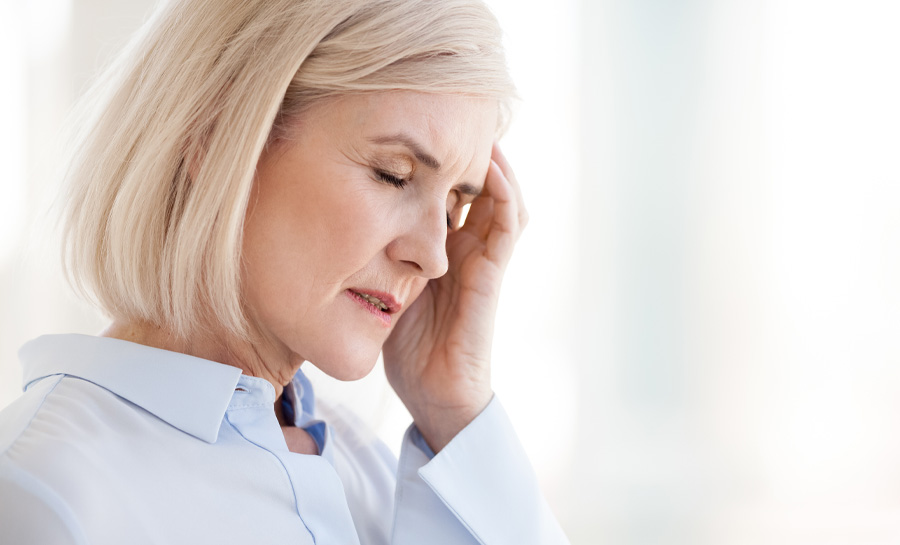Have the frequency and intensity of your migraines seemed to increase as you age? Up to 13% of the population in the United States today suffers from migraines. Migraines not only cause incredible pain but also result in missed workdays and family time. They can severely affect a person’s activity, health, and happiness. This can take a toll on relationships as well. But the pathophysiology of migraines is complex.
An increasing amount of research shows hormones play a significant role in the onset and intensity of headaches. This is one potential reason why migraines might increase as adults age and their natural production of hormones decreases. If you are not familiar with migraines, it is important to identify the difference between a simple headache and a more painful and possibly life-altering migraine.
Symptoms of migraines can include the following.
- Fatigue
- Dizziness
- Pale skin
- Loss of appetite
- Nausea or even vomiting
- Sensitivity to smells, noise, and bright light
- Sudden change in mood
- Onset of confusion
- Vision issues
The science of migraines
Studies show that the majority of migraine sufferers have low magnesium levels. This deficiency leads to brain neuron hyperexcitability and blood vessel spasm in the brain. Both of these issues have been shown to increase migraines. To combat this, 25 Again members are often placed on Krebs Magnesium tablets daily. This is a quick and easy solution that provides wonderful results.
Additionally, a look at multiple research articles suggests that both male and female sex hormones can impact the onset of headaches in general. However, more women seem to be affected by migraines than men. Nearly 70% of migraine sufferers are women. This suggests that the hormones typically occurring at higher levels in females’ bodies play a crucial role in headache pathophysiology. The balance of the two main female hormones, estrogen and progesterone, plays a critical role in avoiding headaches. The slightest variation of this balance can trigger a headache. Many times during a menstrual cycle, women have an excess of estrogen and this can trigger migraine headaches.
Fighting back against migraines
Studies show that estrogen dominance leads to migraines by dilating blood vessels in the brain. Progesterone counteracts these changes by restoring normal vascular tone and acting on GABA receptors in the brain to calm the neurons. The delicate balance of these hormones gets disrupted as women enter perimenopause.
This might all sound complicated at first, but the good news is that the medical experts at 25 Again provide members with advanced medical testing that goes beyond the normal routine that you might have experienced in the past. We often find many of our patients have deficiencies of progesterone or other critical hormones that have gone undiagnosed for years and consequently, played a major role in the onset or worsening of symptoms. Our team works to restore the levels by giving bio-identical micronized progesterone to members when needed. This can quickly and safely lead to a life-changing improvement in their migraines.
Join thousands of our members in living a happier and healthier life. Take the free hormone health survey to begin. This is a fast and simple way to see what underlying issues might be affecting your headaches. After this, find the location nearest you and we will work to schedule a convenient time for your initial consultation.
Sources:
https://www.ncbi.nlm.nih.gov/pmc/articles/PMC6755575/
https://www.webmd.com/migraines-headaches/migraines-headaches-migraines#1
https://www.news-medical.net/health/Headache-and-Migraine-Whate28099s-the-Difference.aspx

